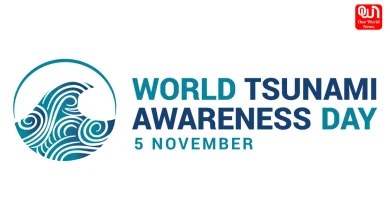Who is the most powerful God?
Who is the most powerful god? Different cultures have different Gods, so how do you know the most powerful God?
Can there be ONE ‘most powerful God’?
The concept of the most powerful god is a topic that has intrigued and fascinated humanity for centuries. Across cultures and civilizations, various deities have been revered and worshipped for their perceived supremacy and divine attributes. Yet, the question remains: who is the most powerful god? To delve into this inquiry, we must embark on a journey through mythology, religion, and philosophy to uncover the complexities surrounding the notion of divine power.
In polytheistic belief systems, such as those found in ancient Greek, Roman, Norse, and Hindu mythologies, multiple gods and goddesses hold sway over different aspects of the universe. Each deity possesses unique powers and dominion over specific domains, ranging from the heavens and earth to love, war, wisdom, and beyond. In these pantheons, debates over the most powerful god often revolve around factors such as influence, longevity, prowess in battle, and the extent of their divine authority.
In Greek mythology, Zeus, the king of the gods and ruler of Mount Olympus, is often regarded as the most powerful deity due to his control over thunder, lightning, and the sky. His immense strength and ability to shape-shift, coupled with his role as the father of gods and men, solidify his status as a formidable figure in the pantheon. However, contenders such as Poseidon, Hades, and Athena also wield considerable power in their respective domains, leading to ongoing discussions about divine hierarchy and supremacy.
Read more: Too stressed in life? Find out what stress does to your body…. (oneworldnews.com)
Similarly, in Hindu mythology, the concept of the most powerful god is multifaceted, with different deities revered as supreme in various traditions. Vishnu, the preserver of the universe, and Shiva, the destroyer and transformer, are often considered among the most powerful gods due to their roles in maintaining cosmic balance and facilitating creation, preservation, and dissolution. Meanwhile, goddesses such as Durga, Saraswati, and Lakshmi embody feminine power and divine grace, challenging traditional notions of male dominance in the pantheon.
In monotheistic religions such as Christianity, Islam, and Judaism, the notion of the most powerful god takes on a different dimension, as believers worship a single, omnipotent deity who is seen as the creator and ruler of the universe. In Christianity, God is often depicted as all-knowing, all-loving, and all-powerful, embodying the attributes of divine sovereignty and omnipotence. Islamic tradition similarly emphasizes the absolute power and majesty of Allah, who is believed to be without equal or rival in his dominion over all creation.
However, even within monotheistic faiths, interpretations of divine power can vary widely among different sects and denominations. Debates over theological doctrines, scripture, and religious practices often shape believers’ perceptions of God’s nature and authority, leading to diverse understandings of the most powerful deity.
Beyond religious beliefs, the concept of the most powerful god has also been explored in philosophical and metaphysical discourse. Philosophers throughout history have grappled with questions of existence, purpose, and the nature of ultimate reality, seeking to understand the source and extent of divine power. From Plato and Aristotle to Descartes and Kant, thinkers have pondered the mysteries of the cosmos and the role of divinity in shaping human experience and morality.
Read more: How can Keto Diet help with weight issues? (oneworldnews.com)
In conclusion, the notion of the most powerful god is a complex and multifaceted concept that spans across cultures, religions, and philosophical traditions. Whether viewed through the lens of mythology, monotheism, or philosophical inquiry, discussions about divine power invite contemplation and reflection on humanity’s eternal quest for meaning, transcendence, and understanding in the vast tapestry of existence. Ultimately, the search for the most powerful god is not merely an intellectual pursuit but a deeply personal and spiritual journey that speaks to the essence of the human condition.
Like this post?
Register at One World News to never miss out on videos, celeb interviews, and best reads.








